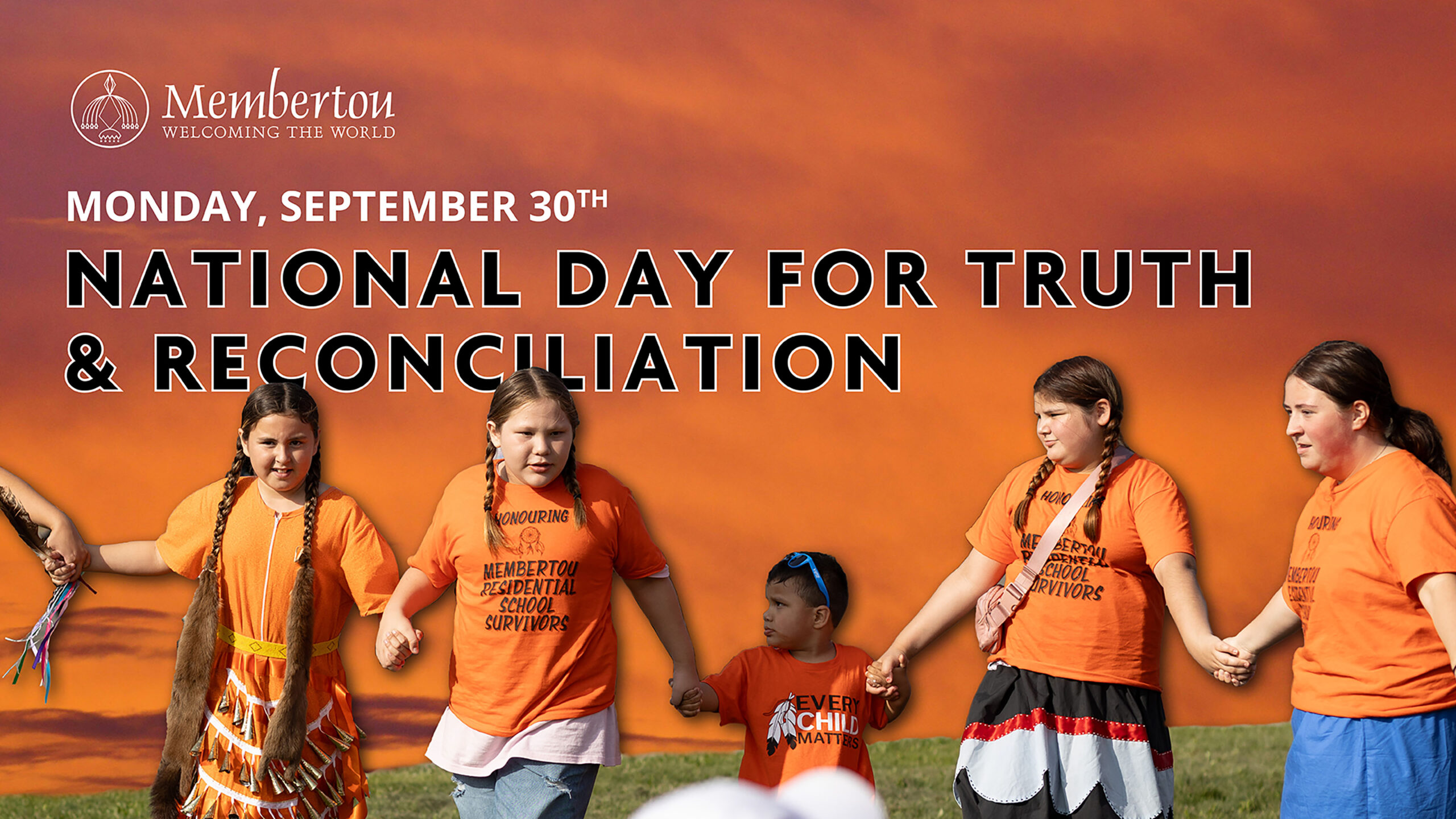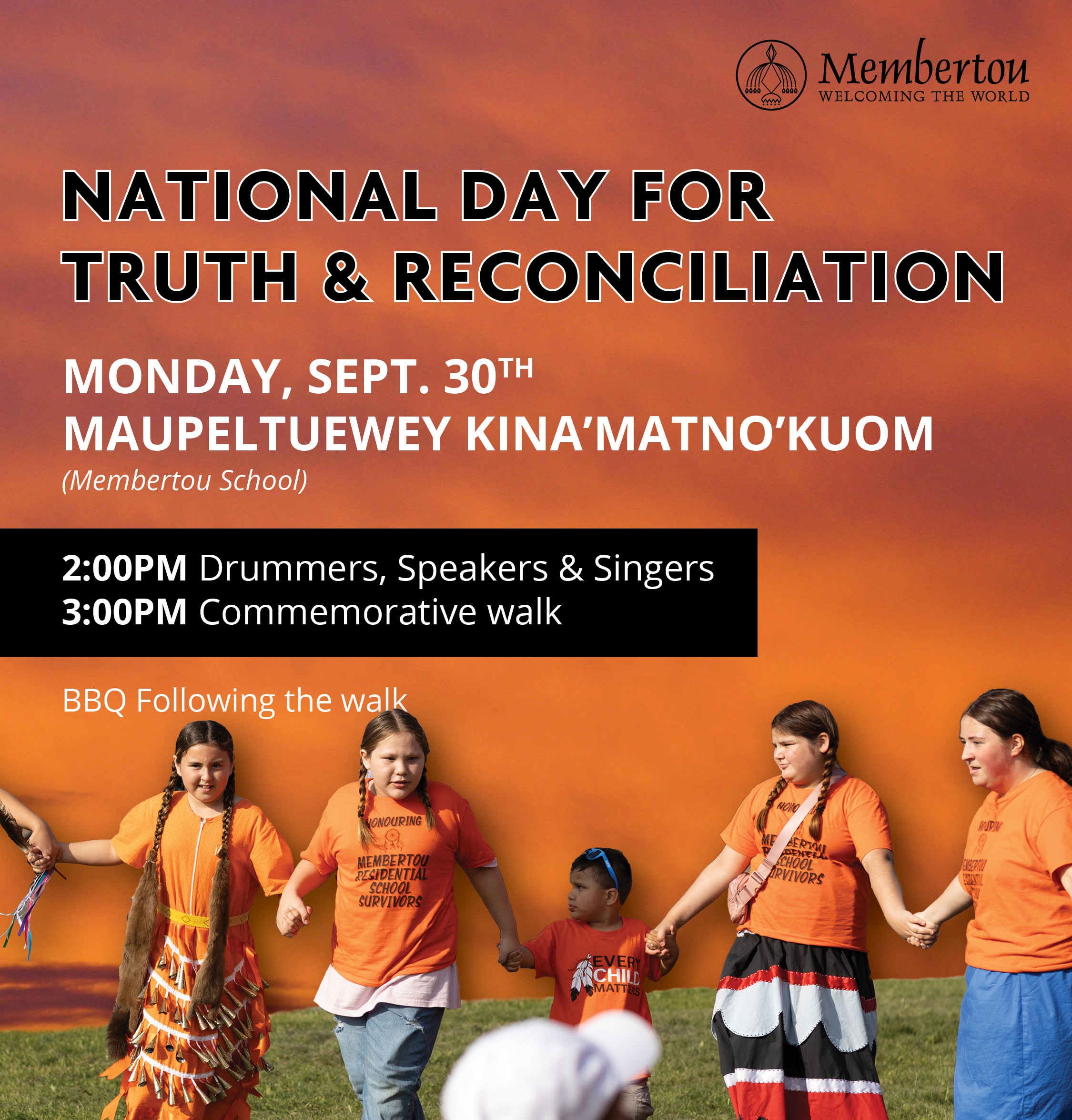
September 30th is recognized as the National Day for Truth & Reconciliation in Canada. The significance of this holiday, is to honour, learn and unlearn about Canada’s dark history with Indigenous people from coast to coast. This includes honouring the innocent children lost and survivors during Canada’s century-long rule of the residential school system. The National Day for Truth & Reconciliation also shines a spotlight on the 94 calls to action from the Truth and Reconciliation Commission. Each Canadian is encouraged to use the day to educate themselves on the past, the present and the future of relations and rights with Indigenous communities/peoples in Canada.
About the Calls to Action – Truth & Reconciliation Commission (TRC)
Between 2007 and 2015, the Government of Canada provided $72 million to support the TRC’s work. The TRC spent 6 years travelling to all parts of Canada and heard from more than 6,500 witnesses. The TRC also hosted 7 national events across Canada to engage the Canadian public, educate people about the history and legacy of the residential school system, and share and honour the experiences of former students and their families.
The TRC created a historical record of the residential school system. The National Centre for Truth and Reconciliation at the University of Manitoba now houses all of the documents collected by the TRC.
In June 2015, the TRC presented the executive summary of the findings contained in its multi-volume final report, including 94 “calls to action” (or recommendations) to further reconciliation between Canadians and Indigenous peoples.
In December 2015, the TRC released its entire 6-volume final report. All Canadians are encouraged to read the summary or the final report to learn more about the terrible history of Indian Residential Schools and its sad legacy.
About Residential Schools in Canada
The residential school system was set up by the Canadian government and was administered by churches that had the nominal objective of educating Indigenous children but also the more damaging and equally explicit objectives of indoctrinating them into Euro-Canadian and Christian ways of living and assimilating them into mainstream white Canadian society.
The residential school system officially operated from the 1880s into the closing decades of the 20th century, with the last school closing in 1996. The system forcibly separated children from their families for extended periods of time and forbade them to acknowledge their Indigenous heritage and culture or to speak their own languages. Children were severely punished if these, among other, strict rules were broken. Former students of residential schools have spoken of horrendous abuse at the hands of residential school staff: physical, sexual, emotional, and psychological.
The residential schools systematically undermined Indigenous, First Nations, Métis and Inuit cultures across Canada and disrupted families for generations, severing the ties through which Indigenous culture is taught and sustained, and contributing to a general loss of language and culture. Because they were removed from their families, many students grew up without experiencing a nurturing family life. The devastating effects of the residential schools are far-reaching and continue to have a significant impact on Indigenous communities across Canada. The residential school system is widely considered a form of genocide because of the purposeful attempt from the government and church to eradicate all aspects of Indigenous cultures.
About Orange Shirt Movement
Orange Shirt Day was born out of the stories told by residential school survivors about their experiences. One in particular is survivor, Phyllis (Jack) Webstad. She told her story of the first day at residential school when her shiny new orange shirt, bought by her grandmother, was taken from her as a six-year old girl.
The annual Orange Shirt Day on September 30th opens the door to global conversation on all aspects of Residential Schools. It is an opportunity to create meaningful discussion about the effects of Residential Schools and the legacy they have left behind. A discussion all Canadians can tune into and create bridges with each other for reconciliation. A day for survivors to be reaffirmed that they matter, and so do those that have been affected. Every Child Matters, even if they are an adult, from now on.
The date was chosen because it is the time of year in which children were taken from their homes to residential schools, and because it is an opportunity to set the stage for anti-racism and anti-bullying policies for the coming school year. It is an opportunity for First Nations, local governments, schools and communities to come together in the spirit of reconciliation and hope for generations of children to come.
Learn more about Orange Shirt Day:
www.orangeshirtday.org

Donate in Support of Truth & Reconciliation
If you’d like to donate to support Membertou School/Youth Centre, please contact:
communications@membertou.ca
Indian Residential School Survivor Society
Downie Wenjack Fund
Business Partners in Reconciliation
In Membertou, we’re fortunate to work with many allys in reconciliation. Over the course of the last year, we’ve gotten many questions about how non-Indigenous businesses can incorporate reconciliation practices into their operations in a meaningful way. Below we’ve highlighted two examples of Membertou business partners, who are actively working to be inclusive of Indigenous values and partnerships. We encourage all organizations to reflect on their practices, and how they could be made better with Indigenous inclusion.
Bank of Montreal
BMO Partnerships & Progress Report
Clearwater Seafoods
Clearwater Seafoods is taking a hands-on approach to reconciliation. As a 50% Mi’kmaq owned company, Clearwater Seafoods is taking the opportunity to reflect and learn for the National Day for Truth & Reconciliation.
Clearwater team members around the globe recognize the National Day for Truth and Reconciliation, a critical step in the reconciliation process, and an opportunity to honour residential school survivors, their families and communities.
Clearwater is proudly Indigenous owned, and continues to learn more and more about the pivotal history of our Indigenous communities as we strengthen partnerships and build lasting relationships together. To mark the National Day for Truth & Reconciliation, Clearwater Seafoods staff participated in a workshop with Alan Knockwood from Sipekne’katik First Nation, who shared his experiences as a residential school survivor of the Shubenacadie Indian Residential School. An understanding of the tragic history and ongoing legacy of residential schools was built, as Alan shared his knowledge and explained the significance of this important day.
Thank you Alan for sharing your very personal experience with Clearwater.
